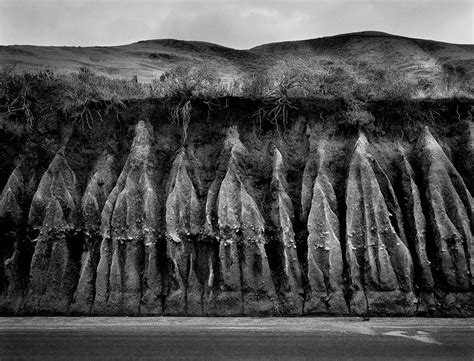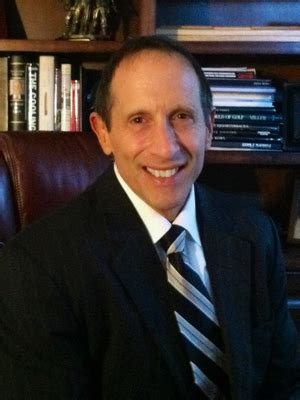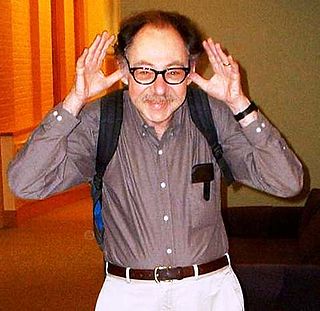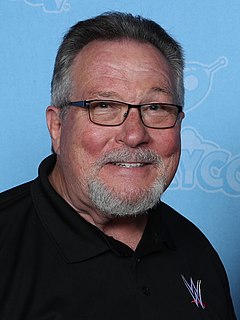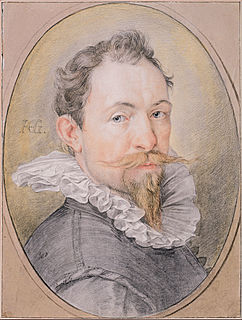A Quote by Steve Erickson
Is the humanism intuitive or labored over?, the answer is: Yes. It begins intuitively, it becomes the reason for writing the thing, and then it's to be considered and fine-tuned and even calculated.
Related Quotes
Accuracy is paramount in every detail of a work of history. Here's my rule: Ask yourself, 'Did this thing happen?' If the answer is yes, then it's historical. Then ask, 'Did this thing happen precisely this way?' If the answer is yes, then it's history; if the answer is no, not precisely this way, then it's historical drama.
What I feel is that the picture-taking process, anyway a greater part of it, is an intuitive thing. You can't go out and logically plan a picture, but when you come back, reason then takes over and verifies or rejects whatever you've done. So that's why I say that reason and intuition are not in conflict-they strengthen each other.
By the time the average person finishes college, he or she will have taken over 2,600 tests, quizzes, and exams. The right answer approach becomes deeply ingrained in our thinking. This may be fine for some mathematical problems where there is in fact only one right answer. The difficulty is that most of life isn’t this way. Life is ambiguous; there are many right answers- all depending on what you’re looking for. But if you think there is only one right answer, then you’ll stop looking as soon as you find one.
I think it's just yet another piece to cause confusion and I think that the 'so-called scientific debate' is very silly now - It's like a bunch of theologians arguing over how many angels you can stick on the head of a needle. When you've got a side that changes from global warming, global warming, global warming to climate change, which is intuitive - the climate has always been changing since the beginning of time - and then just begins to claim every answer is the correct answer, you often stand back, and I don't care who you are, you have to question as to what the real motive is in this.
Writing is the basis of all, because creating something that didn't even exist before is like taking an empty canvass. It is a wonderful thing to make something out of nothing. You've got an empty page, you've got an idea, and then you start typing and that is the most thrilling thing of all. And then if it becomes a movie or something else that's a plus, but the original writing of it is what's very exciting.
I think the gift of music is it's intuitive capability. I think music is a powerful medium because it co-inspires. It inspires the artist who then inspires the listener, and it's a back-and-forth process. Because it's intuitive, the truth has to be defined intuitively. It can't be preached, it can't be pushed. It's got to normally go across organically and make someone feel something, and that's the power of music.
The one thing that's missing from the 9/11 Memorial & Museum, and I don't imagine we'll see it any time soon, is that there's no memorial to the hundreds of thousands of Iraqis who died because of how the memory of 9/11 was used. Memory is a very interesting thing. We very selectively curate our story and then stop when it begins to tell other people's stories and forces us to accept some kind of culpability. One reason I write is that there's not enough Muslims writing, Pakistanis writing, not enough people of faith writing about the complexities of our experiences.
I more seriously considered publishing it under a pseudonym than I considered publishing it as fiction. I think the decision to write it as nonfiction happened at the very outset of the process, because the overwhelming impetus for writing this book was to understand what the experience meant, and to override my own reductions and rationalizations, whatever story I had that was not true. It didn't sit well with me and I needed to answer that. That's sort of the reason I write everything.
John Wesley tells of a dream he had. In the dream, he was ushered to the gates of Hell. There he asked, "Are there any Presbyterians here?" "Yes!", came the answer. Then he asked, "Are there any Baptists? Any Episcopalians? Any Methodists?" The answer was Yes! each time. Much distressed, Wesley was then ushered to the gates of Heaven. There he asked the same question, and the answer was No! "No?" To this, Wesley asked, "Who then is inside?" The answer came back, "There are only Christians here."



